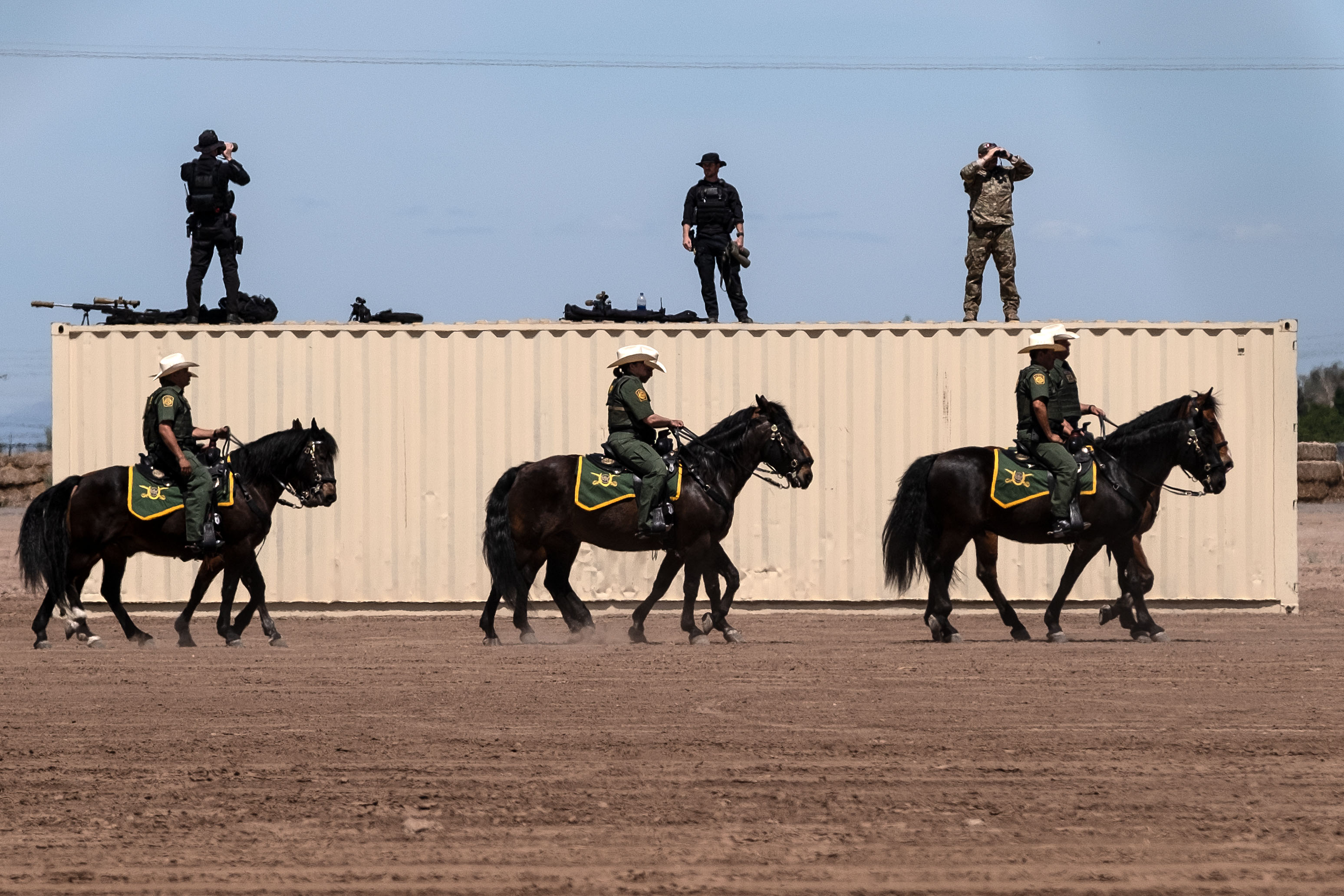- The Supreme Court will decide whether a Mexican family can sue a U.S. Border Patrol agent in an American court for the shooting death of Sergio Hernandez.
- The agent, Jesus Mesa, was standing in the United States when he discharged his weapon and killed Hernandez, who was on Mexican soil.
- The federal appeals courts are divided as to whether such a lawsuit can proceed.
The Supreme Court announced Tuesday that it will decide whether a Mexican family can sue a Border Patrol agent for the 2010 cross-border shooting death of Sergio Adrian Hernandez Guereca.
Hernandez, a 15-year-old Mexican national, was on Mexican soil when Border Patrol agent Jesus Mesa shot and killed him while standing in the U.S. The justices will decide whether the Hernandez family can sue Mesa in an American court.
“When agents of the United States government violate fundamental rights of Mexican nationals and others within Mexico’s jurisdiction, it is a priority to Mexico to see that the United States has provided adequate means to hold the agents accountable and to compensate the victims,” the Mexican government told the high court in legal briefs.
Lawyers for Hernandez’s family say he and several friends were playing a game in the border culvert separating El Paso, Texas, from Ciudad Juarez, Mexico, at the time of the shooting. The Department of Justice counters that the shooting happened as Mesa intercepted a group of smugglers attempting to enter the U.S. illegally, who then hurled rocks at him. Cellphone video contests the government’s version of events. (RELATED: Supreme Court Strikes Compromise To Dodge Abortion Dispute)
Federal prosecutors declined to bring charges against Mesa, after investigators reviewed the shooting as a possible homicide. Hernandez’s death was also investigated for civil rights violations. Mexico asked the federal government to extradite Mesa, but the Obama administration refused.
The case first reached the Supreme Court in 2017, but the justices punted and sent the dispute back to the 5th U.S. Circuit Court of Appeals for further review.
The 5th Circuit found against the Hernandez family the second time around, stressing that Congress has not authorized the kind of lawsuit the family is bringing. The Supreme Court said in a 1971 decision called Bivens v. Six Unknown Named Agents that individuals can sue federal officials for a violation of constitutional rights even without express authorization from Congress. The Hernandez family wants to sue Mesa under the Bivens decision.
More recently, however, the Supreme Court has said expanding Bivens to new areas is a “disfavored judicial activity,” so the 5th Circuit said the Hernandez lawsuit cannot move forward on that basis.

Members of the Secret Service and Border Patrol on horseback near the US-Mexico border on April 5, 2019. (Guillermo Arias/AFP/Getty Images)
“Extending Bivens would interfere with the political branches’ oversight of national security and foreign affairs,” Judge Edith Jones wrote. “It would flout Congress’s consistent and explicit refusals to provide damage remedies for aliens injured abroad. And it would create a remedy with uncertain limits.”
On the other hand, the 9th U.S. Circuit Court of Appeals allowed a Mexican national named Araceli Rodriguez to bring a Bivens suit against a Border Patrol agent who shot and killed her son in 2012. As with the Hernandez case, the agent discharged his weapon from the United States while the deceased was in Mexico. The Supreme Court often hears cases in which multiple courts disagree about the same question of law.
The Trump administration urged the justices to take the case and rule against the Hernandez family. (RELATED: Bill Barr Used This One Figure To Prove Nationwide Injunctions Are A Problem)
“Imposing damages liability on individual agents carrying out that important national security function could undermine the Border Patrol’s ability to perform duties essential to national security by increasing the likelihood that Border Patrol agents will hesitate in making split second decisions,” Solicitor General Noel Francisco wrote in court filings.
Elsewhere in legal briefs, the administration said that a finding for Hernandez would inject the courts into sensitive matters of diplomacy and national security, noting that there is an ongoing “dialogue” between the American and Mexican governments about cross-border shootings.
The case is No. 17-1678 Hernandez v. Mesa.
Send tips to kevin@
All content created by the Daily Caller News Foundation, an independent and nonpartisan newswire service, is available without charge to any legitimate news publisher that can provide a large audience. All republished articles must include our logo, our reporter’s byline and their DCNF affiliation. For any questions about our guidelines or partnering with us, please contact licensing@dailycallernewsfoundation.org.


